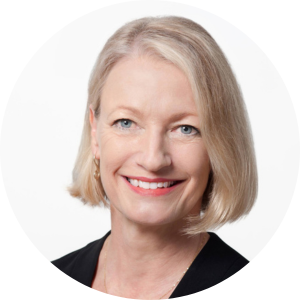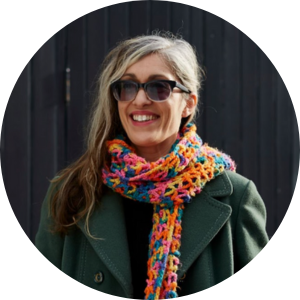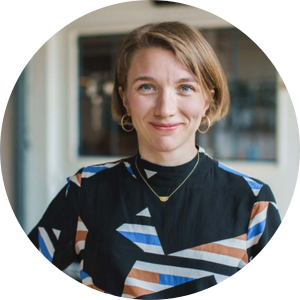Ethnography in the Age of Automation & AI
Elizabeth Churchill, Professor and founding Department Chair of Human Computer Interaction at MBZUAI
Overview
As AI fundamentally reshapes our world, ethnography becomes an urgent necessity and a great opportunity. Ethnography uniquely connects complex AI systems to human experience, revealing cultural and social transformations that are not revealed by quantitative methods alone. Navigating this new landscape means a reworking of ethnographic practice and demands active engagement, curious exploration, deep insight, candid debate, and thoughtful design intervention.
Engaging directly with EPIC2025’s theme of Intelligences, this session tackles crucial questions about the evolution of ethnographic practice. As AI development and dissemination bring unprecedented challenges and opportunities, our expert panel will draw on interdisciplinary insights and real-world examples to explore the present and future of ethnographic practice and the potential for positive impact in the age of automation & AI. We will explore a number of interconnected questions:
- What is changing in the field of ethnography in the era of AI?
- Do we need to redefine ethnographic practice and value in the light of the AI “revolution”? If so, how?
- What does it mean to use AI systems ethnographically?
- What does it mean to do culturally relevant AI design and what role can ethnographers play?
- How does the emergence of AI tool use in ethnographic practice impact longstanding debates about the nature of quantitative versus qualitative data and associated research methodologies?
- AI is assumed by some to have surpassed many human capabilities associated with research practice (e.g., pattern finding). With AI tools promising automation of virtually every identifiable task, how should we assess when and how specific automations make our work better, worse, or just different?
- Do we need to redefine (or at least rebrand!) the value of ethnography in this “era of AI”? If so how?
Speakers
 Elizabeth Churchill is Professor and founding Department Chair of Human Computer Interaction at MBZUAI (the Mohamed Bin Zayed University of Artificial Intelligence) in Abu Dhabi, UAE. She was formerly a Senior Director of User Experience at Google and has served as Executive Vice President of the Association of Computing Machinery. Elizabeth has a background in psychology (neuro, experimental, cognitive and social), artificial intelligence, and cognitive Science; she holds a PhD from the University of Cambridge, an honorary Doctor of Science from the University of Sussex, and an honorary doctorate from the University of Stockholm. She received the Citris-Banatao Institute Athena Award for Women in Technology for her Executive Leadership, the SIGCHI Lifetime Service Award in 2023, and the SIGCHI Lifetime Practice Award. She currently serves as the Co-Editor in Chief of ACM’s interactions magazine, as well as serving as Assistant Editor on a number of journals.
Elizabeth Churchill is Professor and founding Department Chair of Human Computer Interaction at MBZUAI (the Mohamed Bin Zayed University of Artificial Intelligence) in Abu Dhabi, UAE. She was formerly a Senior Director of User Experience at Google and has served as Executive Vice President of the Association of Computing Machinery. Elizabeth has a background in psychology (neuro, experimental, cognitive and social), artificial intelligence, and cognitive Science; she holds a PhD from the University of Cambridge, an honorary Doctor of Science from the University of Sussex, and an honorary doctorate from the University of Stockholm. She received the Citris-Banatao Institute Athena Award for Women in Technology for her Executive Leadership, the SIGCHI Lifetime Service Award in 2023, and the SIGCHI Lifetime Practice Award. She currently serves as the Co-Editor in Chief of ACM’s interactions magazine, as well as serving as Assistant Editor on a number of journals.
 Cato Hunt has spent nearly 20 years helping clients grow their brands by understanding semiotically powered cultural meaning. As Joint Managing Director of Space Doctors, Cato leads the way in exploring and developing new ways in which we can understand, create, and measure meaning by drawing from a wide range of disciplines—from the cognitive and behavioural sciences to design theory, anthropology, and experience design.
Cato Hunt has spent nearly 20 years helping clients grow their brands by understanding semiotically powered cultural meaning. As Joint Managing Director of Space Doctors, Cato leads the way in exploring and developing new ways in which we can understand, create, and measure meaning by drawing from a wide range of disciplines—from the cognitive and behavioural sciences to design theory, anthropology, and experience design.
 Adri Reksodipoetro is the Managing Director of Nation, a qualitative research firm delivering fresh, authentic perspectives on Asia and the Emerging World. For almost a decade he has helped Google localize Search, Assistant, and now Gemini in Southeast Asia, each requiring deep insight into how people process information through the lens of their local context and cultural frameworks.
Adri Reksodipoetro is the Managing Director of Nation, a qualitative research firm delivering fresh, authentic perspectives on Asia and the Emerging World. For almost a decade he has helped Google localize Search, Assistant, and now Gemini in Southeast Asia, each requiring deep insight into how people process information through the lens of their local context and cultural frameworks.
 Louise Vang Jensen is a partner and co-CEO at IS IT A BIRD, a strategic innovation agency in Copenhagen. She has a background in anthropology and has been working in the field for over 10 years. Louise is passionate about applying anthropology in business and helping organizations understand the value of a human-centered approach. Louise’s career includes collaborations with organizations, including NIKE, VELUX, and Novo Nordisk, as well as public sector entities like the Municipality of Copenhagen and Metroselskabet. She has also worked with philanthropic foundations such as Villum Fonden and TrygFonden, as well as media houses like JP/Politikens Hus.
Louise Vang Jensen is a partner and co-CEO at IS IT A BIRD, a strategic innovation agency in Copenhagen. She has a background in anthropology and has been working in the field for over 10 years. Louise is passionate about applying anthropology in business and helping organizations understand the value of a human-centered approach. Louise’s career includes collaborations with organizations, including NIKE, VELUX, and Novo Nordisk, as well as public sector entities like the Municipality of Copenhagen and Metroselskabet. She has also worked with philanthropic foundations such as Villum Fonden and TrygFonden, as well as media houses like JP/Politikens Hus.
